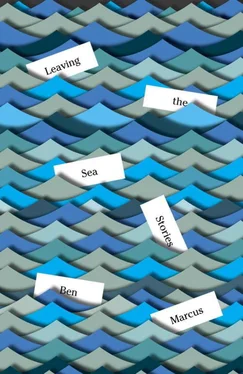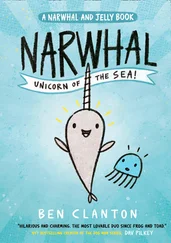Rick walked into the bathroom while Paul was brushing his teeth, then backed out, apologizing. Through a foam of toothpaste Paul told him it was okay, waved him in. This would be their peaceful encounter, Rick sitting on the toilet lid waiting for Paul to spit and rinse.
“That was fun tonight,” Paul said.
“It was so great.” Rick shook his head. “And the toasts, oh my gosh. Amazing.”
The toasts. Paul must have been outside.
“What your mom said. I mean, I choked up. That was just…”
Paul could only agree. What his mom said. Never in his life had he seen his mother make a toast.
“I love family,” Rick said. “All of that family, together.”
“Oh, hey, did someone get hurt tonight?” Paul asked.
Rick looked confused, as if this were one of Paul’s trick questions.
“I saw a stretcher go into the hotel,” Paul explained. “I thought maybe something happened.”
“Hmm, no,” Rick said. “I mean, not that I know of. But I was dancing it out pretty hard.”
“Okay, that’s good,” Paul said. “Tell my sister good night.”
“Will do, buddy. Good night yourself.”
The two hours of sleep didn’t happen. Paul lay awake and looked at the clock until eventually it was time to wait outside for the car. He crept downstairs with his bags, dropped them at the door. He’d get a drink of water in the kitchen, maybe grab some fruit for the trip.
At the kitchen table, shuffling an amber colony of pill bottles, sat his mother. She didn’t hear him come in, and he startled her.
She clutched her robe, looked past him into the dark hallway. Why was it that he still frightened her?
“Pauly, what are you doing?”
He mumbled, wishing he hadn’t come in. His car would be here in a few minutes, and now he’d have to say good-bye.
His mother noticed his coat, figured it out, and he couldn’t tell if she was disappointed or relieved. Why not both?
“I have to get back,” he said. “I’m sorry.”
“Paul, for what? Stay with us. Why do you have to go?”
She could not possibly want an answer. But maybe it was ugly of him to assume the worst. Maybe this was it. His sweet mother was sitting here asking. He would tell her.
“I’m a father, Mom. I’m married. We have a little boy. Jack. We call him Jackie. He’s two, Mom. He’s already two!”
His mother cried.
“Pauly, it’s okay, honey. I don’t know how else to tell you, but it’s okay and we love you and we will always love you, and I wish you believed us. You are our little Paul, always.”
She reached out to him across the table and he took her hands.
“But, Mom, it’s true.”
Had he really lied that much? Was his credibility gone forever?
“Sweetheart, I know it is. Of course it’s true. I would love to meet him, I mean, to see him. What was his name, your boy?”
Oh, God, did he yell. He yelled the most awful things. He hit the table, stood up too fast. Something fell over, and now his mother truly wept, and she threw her arms up as if he were about to strike her. But why would he hit his own mother?
For years he would attempt to dismantle this moment. It was among the most useless activities a mind could pursue, the revision of shit that had really fucking happened, yet somehow it became the activity his mind fell into the most.
He heard his name, barked by his father.
His dad was here now. Why not Alicia? Why not Rick? Get everyone together.
“Paul, you will not do this. Not to your mother.”
His father trembled, ready for battle.
“I’m not, Dad. I’m not doing anything.”
Paul backed away, giving his poor father courage.
“Go on now, Paul. Please go.”
“Okay, I will. I’m sorry. I was telling Mom something. About my son.”
“We believe you, Paul. We really do believe you. The woodworking, the family. We do.”
Together they nodded up at him. Tell him what he wants to hear and maybe he’ll leave. Were they even his family? Was this even his home? Or maybe they did believe him, and this was simply what it felt like to be believed. It felt wrong—it felt like nothing.
Paul determined that if anyone asked him, in the years to come, he’d say that if you’ve ever scared someone, even accidentally or as a joke, that person will flinch when he sees you. Even if you did it because you yourself were scared, because you were small-minded, or small-hearted, or because you had small aims and should never have been let out of your cage when your little life began. You might not notice it, but the people you have scared will flinch, on the inside. You will have to cross the street and give those people a wide berth. It is the most considerate thing to do. Just let them pass.
He left the house and rode the car service through the dark streets of Cleveland to the airport. He’d fly home, take the shuttle to his apartment. When he’d settled in, maybe he’d write his parents a letter. Put together a photo album, Xerox the marriage and the birth certificates. Would that suffice? He’d tie up a bundle and mail it to them. In their own time, they could examine the evidence of their son’s new life. They could do it without him standing there. Paul would send proof and then he would wait. He’d be many miles away, where he could do no harm. At their leisure, they could examine the parts of their son that would not hurt them.
I Can Say Many Nice Things
Fleming woke in the dark and his room felt loose, sloshing so badly he gripped the bed. From his window there was nothing but a hallway, and if he craned his neck, a blown lightbulb swung into view, dangling like a piece of spoiled fruit. The room pitched up and down and for a moment he thought he might be sick. The word hallway must have a nautical name. Why didn’t they supply a glossary for this cruise? Probably they had, in the welcome packet he’d failed to read. A glossary. A history of the boat, which would be referred to as a ship. Sunny biographies of the captain and crew, who had always dreamed of this life. Lobotomized histories of the islands they’d visit. Who else had sailed this way. Famous suckwads from the past, slicing through this very water on wooden longships.
A welcome packet, the literary genre most likely to succeed in the new millennium. Why not read about a community you don’t belong to, that doesn’t actually exist, a captain and crew who are, in reality, if that isn’t too much of a downer on your vacation, as indifferent to each other as the coworkers at an office or bank? Read doctored personal statements from underpaid crew members—because ocean life pays better than money!—who hate their lives but have been forced to buy into the mythology of working on a boat, not a goddamned ship, separated now from loved ones and friends, growing lonelier by the second, even while they wait on you and follow your every order.
And yet, when Fleming thought about it, this welcome packet, fucked up though it was, even though he hadn’t read it, most certainly had more readers than he did. More people, for sure, read this welcome packet than had ever read any of his books or stories. This welcome packet commanded a bigger audience, had more draw, appealed to more people, and, the kicker, understood its cherished readers better than he ever would with his sober, sentimental inventions of domestic lives he’d never lived, unless that was too flattering a description of the literary product he willed onto the page with less and less conviction every time he sat down at his laptop.
Maybe he’d actually learn something about writing if he read the welcome packet. Maybe in his class he should instruct his students not to write short stories but to write welcome packets.
Читать дальше












